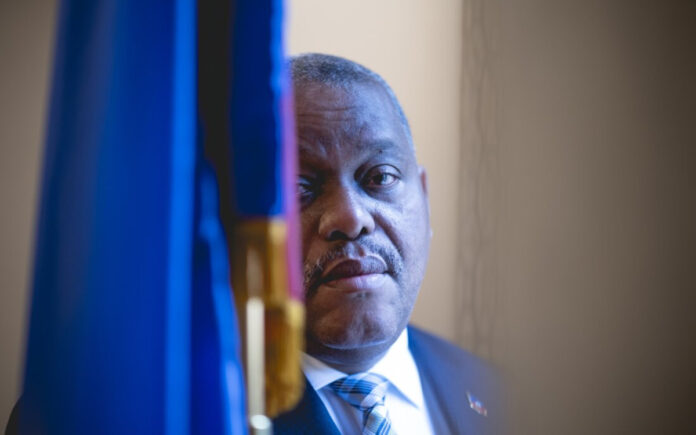Port-au-Prince: Haitian Prime Minister Garry Conille has embarked on a diplomatic mission to the United Arab Emirates and Kenya in a bid to secure security assistance after one of the deadliest gang attacks in Haiti’s recent history. The trip, which began on Saturday, comes in the wake of a massacre in the town of Pont-Sonde, located in the western Artibonite region, where at least 70 people, including infants, were killed by members of the notorious Gran Grif gang.
The attack, which took place early Thursday, forced more than 6,000 residents to flee their homes and left the nation in shock. Even in a country accustomed to violence, the scale of the massacre has been described as unprecedented. Haiti’s national police force, already struggling with limited resources, continues to face overwhelming challenges in curbing gang violence.
“As you can see, we are being attacked on several fronts,” Conille said during a press conference before his departure.
The U.N. Security Council recently extended the mandate of an international security force to aid Haiti’s police in their fight against gang violence and lawlessness. However, progress has been slow, with only around 400 Kenyan police officers currently deployed.
“One of the aims of this trip is to go to Kenya to discuss with President Ruto how we can speed up the deployment of the remaining Kenyan troops as quickly as possible to continue supporting the national police force,” Conille stated.
In addition to his visit to Kenya, Conille is scheduled to meet with officials in the United Arab Emirates to explore potential avenues of financial and logistical support for Haiti’s beleaguered police force. “We will discuss with our counterparts in the UAE how we can secure regular flows of support to combat security challenges,” he said.
Also Read | U.S. Embassy in Pakistan Alerts Citizens of Potential Demonstrations and Security Measures
The Prime Minister also visited victims of the attack in the hospital on Friday, accompanied by heavily armed security personnel. During his visit, he assured the survivors that reinforcements from Port-au-Prince were on the way to bolster local security efforts. Meanwhile, Haiti’s national police have made some administrative changes, including the replacement of the police director in charge of the Artibonite department.
The Gran Grif gang, which dominates the Artibonite region—home to many of Haiti’s rice fields—has grown in strength in recent years. According to security analysts, the attack was reportedly an act of retaliation. Gang leader Luckson Elan claimed it was in response to local civilians remaining passive while vigilante groups and police forces targeted his men.
Also Read | Russia’s Envoy to the U.S. Ends Term Amid Deepening Bilateral Tensions
This week’s violence is a grim reminder of the deepening crisis in Haiti, where armed gangs now control much of the capital, Port-au-Prince, and are extending their reach into other regions. The expanding gang presence has worsened food insecurity and displaced hundreds of thousands of people, adding to the already dire humanitarian situation.
The number of internally displaced persons in Haiti has surged to over 700,000—a near doubling in the last six months. While international support has been promised, it has yet to materialize in a way that significantly impacts the ongoing conflict, with neighboring countries also deporting Haitian migrants back to the country, further complicating the situation.



